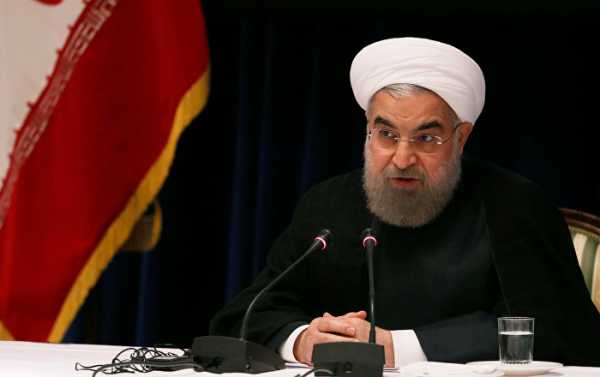
Iran’s parliament has rejected next year’s budget submitted by President Rouhani over concerns the proposed spending cuts could stoke public uproar and anxiety.
Kristian Rouz – The Iranian parliament – known as the Majlis – rejected President Rouhani’s proposed budget for the coming fiscal year (March 2018–2019). Lawmakers expressed their dissatisfaction with a new round of austerity, which includes cuts to key governmental subsidies, and suggested budget spending should remain at its current levels.
The proposed budget was voted down 120 to 83 Sunday, according to Iranian state media. Some lawmakers reportedly said the living conditions of teachers and other governmental employees are unsatisfactory, and therefore cuts to budget spending could stir popular anxiety over economic hardships.
“The presentation of Iran’s budget proposal every year is a big thing, because it contains, you know, most financial information of the country,” Thomas Erdbrink of The New York Times reported from Tehran earlier this month.
This comes after massive street protests erupted across Iran in late December, with protesters citing low incomes, poor quality of life, and other economic problems as the main reason for the civil unrest.
Rouhani had sent his draft budget proposal to the parliament back in November, and some say his budget transparency triggered a reaction in the form of public outrage and street demonstrations.
“This year, the proposal was presented quietly, but when people started going through its pages, they found information that they previously hadn’t seen,” Erdbrink said. “They also read in the budget that they would be forced to pay more for fuel. They read in the budget that the monthly cash handouts of Iran, $12 a person, would be cancelled for 30 million Iranians.”
The government’s increasing expenditures on Islamic institutions and the military angered Iran’s public. Meanwhile, the rising costs of living and stagnant incomes have produced mounting economic grievances.
“Huge amounts of this budget will be spent for regional ambitions in Yemen, Syria, Lebanon and Palestine in support of Iran proxies,” Babak Taghvaei, an Iranian political expert, said.
The government, however, has to implement tighter fiscal policies. Crude oil is Iran’s main source of budget revenue, and with oil standing at $55/bbl in 2016, according to the data from Federal Reserve Bank of St. Louis, budget revenues have been very modest over the past two years. This despite international oil prices have increased to $70/bbl this year.
Iran’s unemployment stands at 12 percent, whilst inflation is still high, at 10 percent, compared to 40 percent back in 2013.
Iran’s parliamentary commission recommended several key amendments to the proposed budget. Lawmakers proposed to keep gasoline prices unchanged, setting oil price expectations at $55/bbl, and pegging the national currency FX rate at 35,000 rials per US dollar.
The parliament also proposed freezing the salaries of government employees, capping maximum increases in salaries for everybody else at 18 percent, and prohibiting any hikes in tariffs, duties, and other costs of services provided by government organizations.
Lawmakers also put forth tax exemptions for civil servants earning below $522 (23 million rials) per month, and for guild members earning less than $409 (18 million rials) per month.
The proposed budget revisions will be discussed in early February.
Sourse: sputniknews.com






